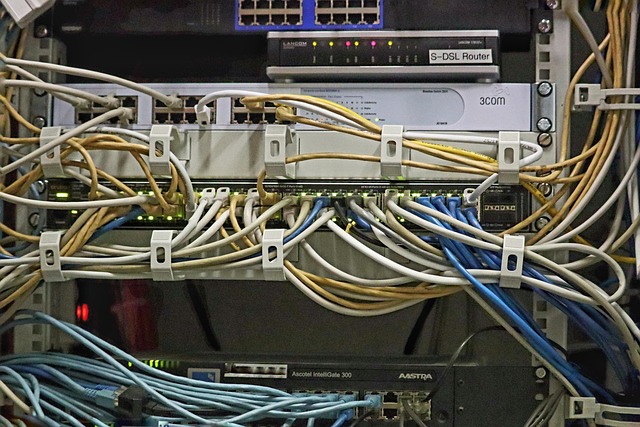Accounting firms face heightened cyber risks, requiring stringent IT security measures. Implementing multi-factor authentication, role-based access controls, and robust password policies strengthens defenses against internal and external threats. Advanced email protection, firewalls, encryption, and cloud security enhance the IT lockdown for accountants. Regular security audits, vulnerability assessments, backup strategies, and employee training further mitigate risks associated with data breaches, phishing, malware, and ransomware. Prioritizing these measures ensures client data integrity, fosters trust, and safeguards against evolving cyber threats in a digital landscape.
In today’s digital age, accounting firms face unique cybersecurity challenges. As financial data becomes increasingly valuable to cybercriminals, implementing robust IT security strategies is essential. This article explores critical components of an effective IT lockdown for accountants, including access control, encryption, regular audits, backup plans, and employee training. By adopting these strategies, accounting firms can safeguard their digital assets and protect sensitive client information.
- Understanding the Unique Risks Faced by Accounting Firms
- Implementing a Robust Access Control Strategy
- Encryption: A Cornerstone of Data Protection
- Regular Security Audits and Vulnerability Assessments
- Backup and Disaster Recovery Planning
- Employee Training and Awareness Programs
Understanding the Unique Risks Faced by Accounting Firms

Accounting firms face unique challenges when it comes to IT security due to the sensitive nature of their digital assets. With vast amounts of financial and client data at risk, any breach can have severe consequences. The primary concerns include unauthorized access, data leakage, and sophisticated cyberattacks tailored to exploit vulnerabilities in accounting software and practices. Many traditional security measures may fall short, as common threats like phishing emails and malware can be highly effective in targeting CPAs and their teams.
Implementing robust firm security protocols is essential for protecting both the integrity of financial records and the reputation of the accounting firm. This includes configuring strict IT lockdowns to prevent unauthorized access, implementing advanced email protection measures for CPAs, and developing comprehensive data security plans that cater to the unique requirements of accounting software and practices. By adopting these strategies, firms can ensure they maintain the highest levels of data security while enabling their CPAs to work efficiently in a digital environment.
Implementing a Robust Access Control Strategy

Implementing a robust access control strategy is paramount for accounting firms to safeguard their digital assets in today’s digital landscape. With sensitive financial data at risk from both internal and external threats, firms must adopt strict measures to control who can access what. This involves employing multi-factor authentication (MFA) to ensure that only authorized personnel gain entry to critical systems, coupled with role-based access controls that limit permissions based on job functions. For instance, implementing a strong password security accounting protocol and regularly auditing access rights can prevent unauthorized access, data breaches, and potential fraud.
Additionally, leveraging tools like firewalls, especially when setting up a CPA firewall, serves as a crucial line of defense against malicious threats. Email protection for CPAs is another critical aspect that should not be overlooked, given the prevalence of phishing attacks and malware delivered via email. By integrating robust email security solutions, accounting firms can mitigate risks associated with these communication channels, enhancing their overall IT lockdown for accountants and ensuring data integrity and confidentiality.
Encryption: A Cornerstone of Data Protection

In the realm of accounting, where sensitive financial data is the lifeblood of operations, robust IT security strategies are non-negotiable. At the heart of these strategies lies encryption, a powerful tool that transforms data into an unreadable format, safeguarding it from prying eyes. By implementing strong encryption protocols, accounting firms can ensure that even if there’s a breach, the stolen information remains indecipherable to malicious actors. This is particularly crucial during IT lockdowns, where access to systems and data must be strictly controlled.
A comprehensive approach involves setting up a CPA firewall that acts as a gatekeeper, filtering incoming and outgoing network traffic. Combined with cloud security measures for CPAs storing data in the cloud, this creates an impenetrable barrier against cyber threats. Furthermore, email protection for CPAs is vital, as emails are a common vector for phishing attacks and malware infiltration. Integrating these multiple layers of defense ensures that accounting firms can maintain their digital integrity, fostering trust with clients who rely on their discretion and expertise.
Regular Security Audits and Vulnerability Assessments

Regular Security Audits and Vulnerability Assessments are indispensable components of a robust IT lockdown for accountants. These audits ensure that firm security protocols remain up-to-date and effective against evolving cyber threats. By conducting thorough vulnerability assessments, accounting firms can identify weak points in their systems before malicious actors do, thereby fortifying their digital assets with compliance-level security. Advanced threat detection technologies play a pivotal role in this process, continuously monitoring networks for suspicious activities and immediately flagging potential risks. Regular audits also encourage a culture of security awareness among staff, ensuring everyone understands their role in maintaining the integrity of sensitive financial data.
Backup and Disaster Recovery Planning

In today’s digital landscape, robust Backup and Disaster Recovery Planning (BDRP) is a cornerstone of IT security for accounting firms. With sensitive financial data at risk from cyber threats, implementing a comprehensive BDRP strategy ensures that, in the event of a breach or system failure, critical information can be swiftly recovered. This involves regular data backups stored securely, both on-premises and in the cloud, to safeguard against ransomware attacks, human error, or natural disasters.
Furthermore, advanced threat detection systems, combined with robust IT lockdown measures for accountants, offer an extra layer of protection. Cloud security for CPAs is paramount, as many firms now store data remotely. Phishing defense CPAs should be a priority, given the prevalence of social engineering attacks targeting financial professionals. By integrating these strategies, accounting firms can fortify their digital defenses, ensuring business continuity and the safety of their valuable assets.
Employee Training and Awareness Programs

Employee Training and Awareness Programs are essential components of any robust IT security strategy for accounting firms. With the increasing sophistication of cyber threats, simply relying on traditional security tools is no longer enough. By implementing regular training sessions, firms can educate their employees about the latest phishing schemes, social engineering tactics, and best practices for password security—crucial aspects in the world of digital asset protection, especially during IT lockdowns. These programs should also cover the importance of multi-factor authentication (MFA) and identity protection accounting measures to prevent unauthorized access to sensitive data, such as financial records stored in cloud security environments for CPAs.
Firms should strive to create a culture of cybersecurity awareness where every employee understands their role in safeguarding digital assets. This involves teaching them to recognize suspicious emails or links, the value of strong, unique passwords, and how to navigate potential risks during remote work setups. Regularly updating these training programs is vital as new threats emerge, ensuring that accounting professionals are well-equipped to protect their firm’s valuable data from both internal and external risks.
